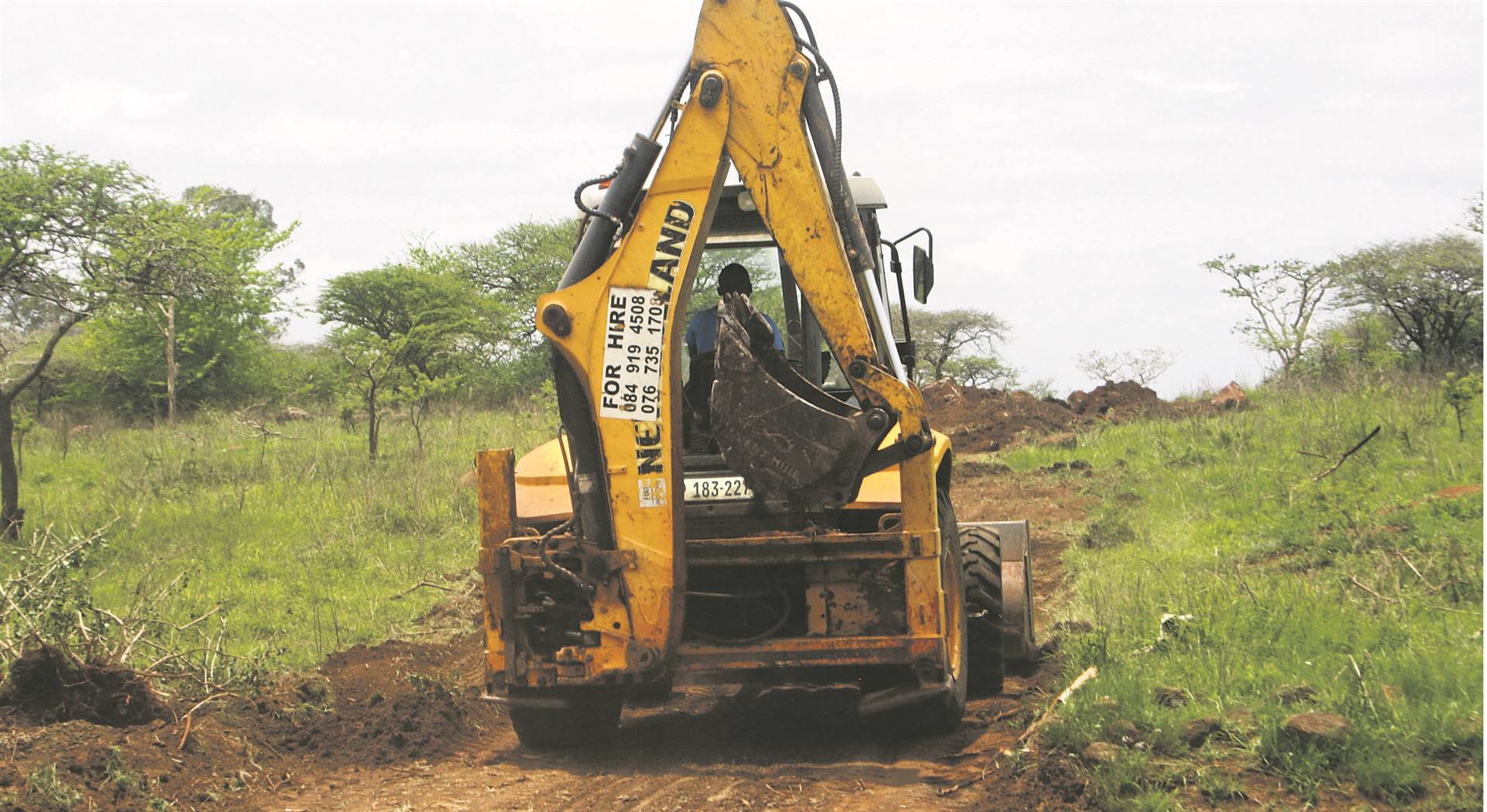


The land invaders use graders to erect illegal structures.
- There have been at least 260 incidents of alleged land invasions in Cape Town during the April to July lockdown period.
- In addition to damage to roads and infrastructure, more than R1.3 billion of housing projects are under threat.
- The provincial government is counting on the police and the SANDF to step up arrests of perpetrators.
The City of Cape Town has dealt with 260 incidents of alleged illegal land occupation between April and July’s lockdown, the Western Cape government said in a plea to the police and military for help to stave off “highly coordinated and sophisticated” incidents.
This comes as shacks are erected amid violent clashes with law enforcement authorities, and new settlements, with names such as “Covid Village”, emerge to reflect the complexities of the situation during the coronavirus pandemic.
One settlement sprung up on the path of the Diep River, near Dunoon, and during the recent heavy storms, the shacks were submerged in water.
A joint statement by MECs for Human Settlements, Tertius Simmers, Community Safety, Albert Fritz, and Local Government, Anton Bredell, said they are consulting provincially and with the City of Cape Town over the crisis.
READ | Western Cape evictions spark protests
A meeting scheduled between Fritz and national police commissioner Khehla Sitole for Tuesday is aimed at getting more help in coordinating the prevention of invasions and the arrests of perpetrators.
They also called on courts not to let those arrested off with a “slap on the wrist”.
In the latest attempts at occupying vacant land, there have been violent clashes between large groups of people and police in Kraaifontein.
At the weekend, a Metro Police officer was burnt when an incendiary device was thrown at the vehicle he was in. He doused the fire, but sustained injuries to his face and neck.
Injured
The City of Cape Town said at least 40 staffers had been injured in altercations.
Reports indicate that civilians are also being injured during these confrontations.
“I condemn the violent protest action surrounding many of the land invasions in the strongest terms,” said Fritz.
“The land invasions taking placing are highly coordinated and sophisticated in their execution, having already occupied large plots of land in areas such as Wallacedene, Bloekombos and Khayelitsha.
“In many cases, the land being occupied is already designated for services aimed at developing the communities and, therefore, undermines the community in which it takes place.
“It is completely unacceptable that infrastructure, such as roads and arterials, are being damaged by tire burning and that the safety and well-being of residents is further being infringed on by the stone throwing, petrol bombs and other violent and dangerous behaviour.
READ | Unrest continues as roads closed in four ares in Cape Town
“It has become clear that those who are complicit and involved in these illegal events only have criminal intentions,” stated Simmers.
Bredell said the issue was widespread across the province.
The Western Cape government has indicated that it is also having problems handing houses over to beneficiaries as some people are preventing the occupation of the newly built houses.
The Disaster Management Act regulations prevent evictions during the period of the declared disaster, and also prohibits illegal land occupation.
However, Western Cape High Court Judge Gayaat Salie-Hlophe ruled in favour of Hout Bay’s Ginola Phillips, whose Wendy house in Hangberg was taken down. He had been evicted from a site he had built on.
Salie-Hlophe called the eviction “deplorable” and ordered that his goods be returned and that his home be rebuilt.

